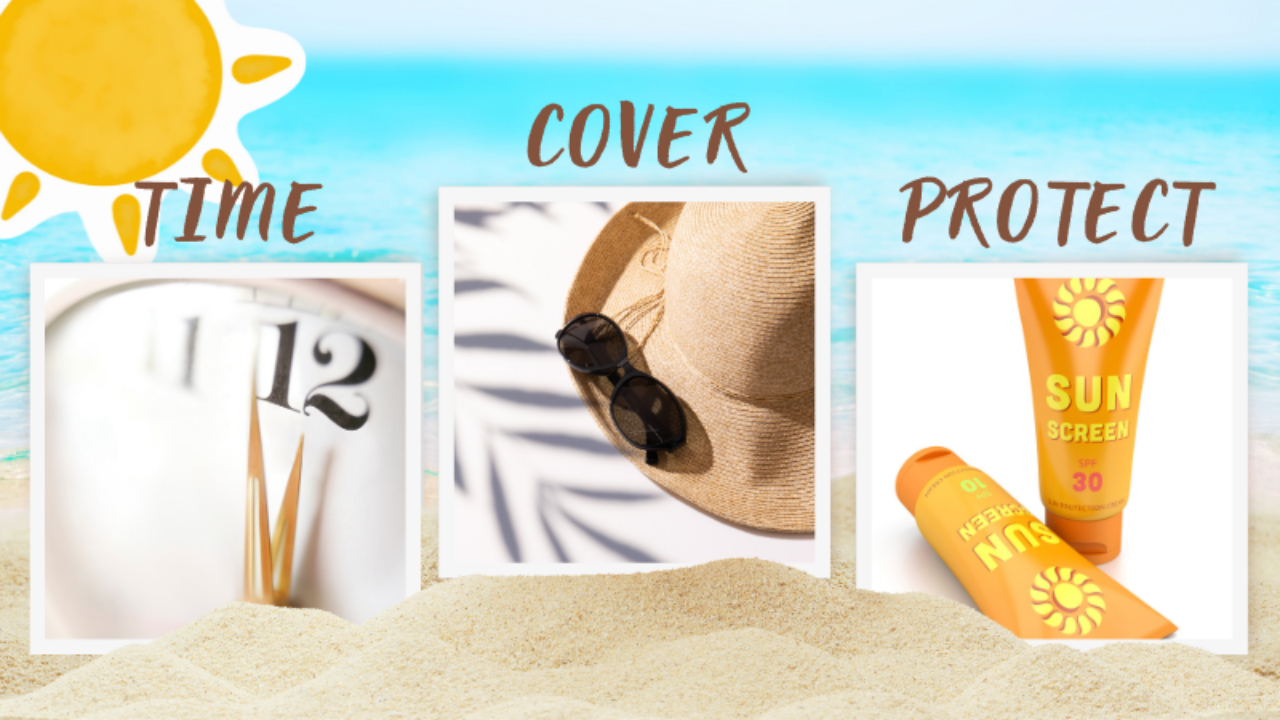Screening the Dangers of Sun Exposure
Jul 18, 2023
The sunny days of summer can bring us so much joy and well-being; time in nature, the mood and health boost of sunlight and Vitamin D, regulating our circadian rhythms and increasing our immunity and energy. But of course, there’s down-sides to too much sun - painful burns, heat exhaustion, increased risk of skin cancer, and damage to the skin resulting in wrinkles, sagging and uneven pigmentation. Balance the benefits with the risks by using a multi-step approach to safer summer sun.
- Avoid the sun at its most intense. This is the simplest sunblock there is - stay out of the sun! Think about sun intensity and heat when planning your activities, get your gardening done in the morning, or have a late afternoon picnic. This is how most mammals manage the sun, and why you won’t see lions (or your housecat) running around at noon!
- Physical protection. If you are out in the sun, cover up! Hats, long sleeves or coverups, and umbrellas or parasols all offer protection from both UVA and UVB rays, as well as heat. There are many UV blocking specific products on the market now where you can see the SPF rating of the clothing and feel confident it will protect you. And don’t forget sunglasses!
- Sunscreen. Sunscreens protect you from sun damage either by physically blocking the sun with ingredients like zinc, or with chemicals that block UVA or UVB rays. Because they’re intended to be used every day, over a whole lifetime, your body will absorb a lot of whatever is in your sunscreen! How can anyone without a PhD in chemistry make sense of the options? At Energy Matters, we love the Environmental Working Group, creators of the SkinDeep Database for personal care products. They’ve done all the research in their consumer guide to sunscreen so you can choose sun protection that will be safe and effective. You can browse their certified products or enter your favorite to see its safety profile.
Here’s a few things to keep in mind when choosing sunscreen:
Mineral sunscreens made of zinc oxide or titanium oxide are generally the safest. They also offer full spectrum protection, from both UVB rays (that cause burns) and UVA rays (that cause long term damage that you don’t see or feel). However, even with mineral sunscreens, avoid sprays which you’ll breathe in as you apply them; they’re safe for your skin, but not your lungs! Spray sunscreens have also been found to be heavily contaminated with benzene, a dangerous chemical.
Chemical sunscreens use dozens of different chemicals to transform UV rays before they can harm your skin, with wide-ranging health risks. In the United States, the FDA has been slow to create guidelines for sunscreen claims and ingredient safety, and continues to allow some chemicals that are not permitted in other countries due to safety concerns, and has not allowed others that appear to be lower risk. As well as being harmful to people, many sunscreen ingredients are damaging to the environment, especially coral reefs when swimmers shed chemicals into the water. However, some find chemical sunscreens easier to apply, and more invisible on the skin, especially for daily wear on the face.
Slather your screen: real world tests show that most folks don’t use sunscreen effectively. To ensure you’re getting the best protection, apply enough! Experts recommend at least an oz (a shot glass full) on your body, and a teaspoon or quarter sized amount for your face. Skin care aficionados use a ‘handy’ hack - squirt sunscreen from the base to the tip of your index and middle fingers, then apply to your face. Don’t forget areas like your ears, tops of your feet, and your hands. Once you’re out and about, reapply every two hours. Sunscreen needs to be a layer on top of your skin to work, so sweat, rubbing and wear will leave you unprotected.
Here’s a few brands that Energy Matters staff use, in addition to our hats, shirts and parasols!
If you have a fave sun protection product or technique, or have questions about navigating sun safety, let me know!
Enjoy the sun without the sizzle,
Kirsten Cowan
Licensed Acupuncturist, Clinic Manager
Get Personalized Health Guidance
Looking to improve your wellbeing? Reach out to schedule an appointment for tailored health advice and to start getting relief soon.
Book Now